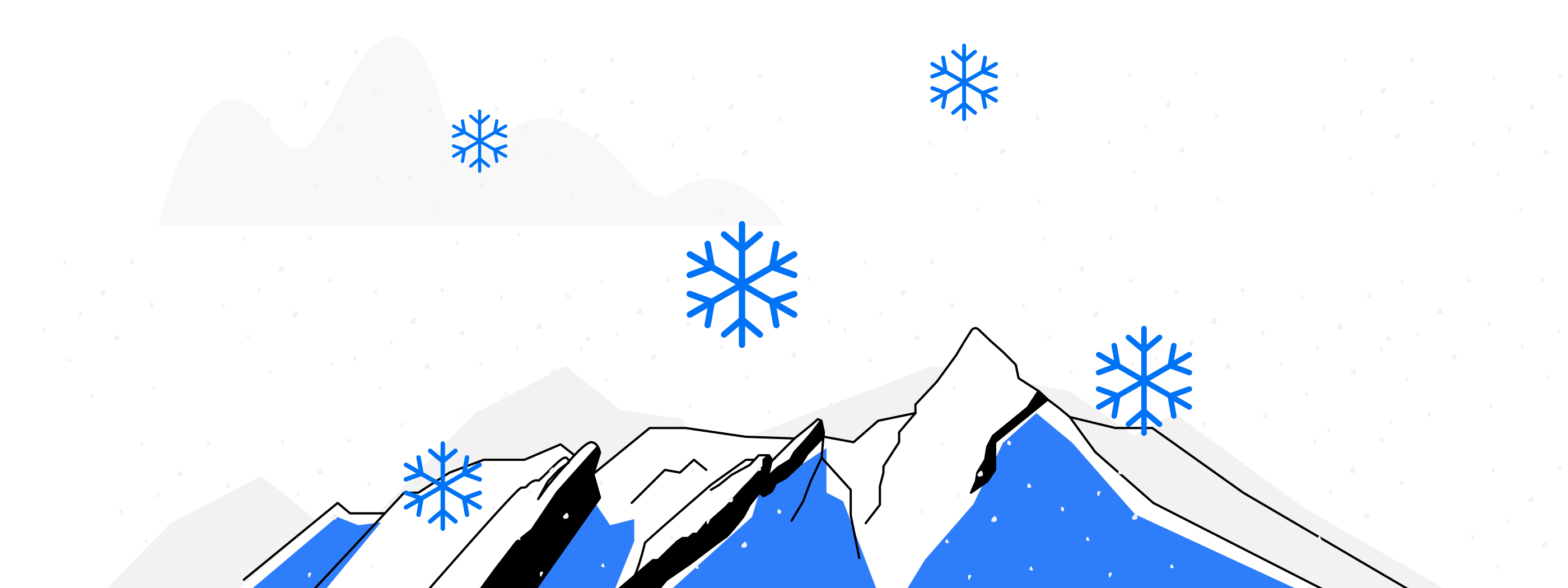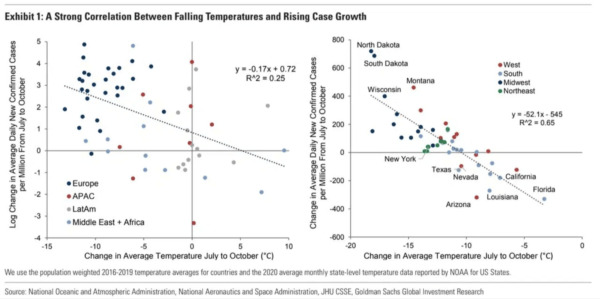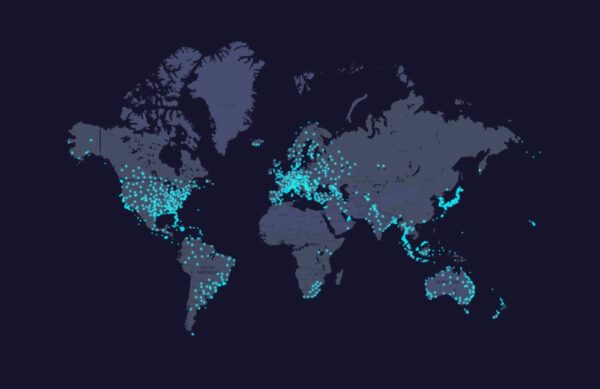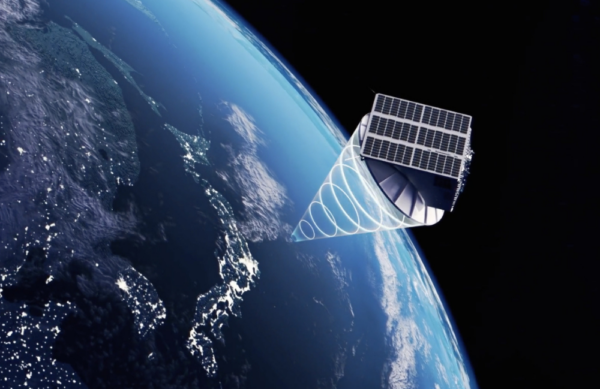As we move into colder months in the Northern Hemisphere, the number of COVID-19 cases has again begun to rise.
While everyone is rightfully concerned about the 2020 holiday season and the potential spread as people celebrate with family and friends, that’s not the only potential hazard. There’s another clear trend that is concerning scientists: the weather.
It’s long been thought that there is a correlation between COVID-19 and colder temperatures, but until recently, there was not sufficient data to prove this theory right or wrong. However, a recent study revealed that there is in fact a connection between colder weather and the rates of infection.
Here’s what you need to know about COVID-19 as the temperature drops, and how it can impact the economy as we move into 2021.
The Link Between Temperature and COVID
Researchers at Goldman Sachs did an analysis of temperatures and rates of infection of COVID-19 from July to October 2020. As previously predicted by scientists, there is a strong negative correlation between confirmed cases and temperature – in other words, as the temperature drops, the number of new cases of COVID-19 go up.
While this is not concrete proof since correlation does not equal causation, it is a concerning trend that scientists will be watching closely in the coming months.
What Causes the Link Between Temperature and COVID?
While the numbers are concerning, to say the least, the correlation between cold temperatures and COVID isn’t incredibly surprising. Much like other coronaviruses like the common cold and the flu, infection rates go up in colder weather – hence “cold and flu season.”
The likely cause of the connection is probably due to two different and interconnected issues. During colder months, people are more likely to spend time indoors, which increases exposure to the disease. In addition, cold weather can impact the immune system and overall health, making many people more susceptible to illness.
How Will This Impact the Economy in 2021?
Because this study was conducted by Goldman Sachs, they specifically looked at how the rising cases of COVID-19 will affect the economy as we move into the winter months and the new year.
Goldman’s team of analysts project that the economies of the US and Europe will likely slow significantly during Q1 and Q4, followed by a springtime thaw as new case numbers start to recede. In other words, as the cases fall, the economy rises. And as temperatures rise, so will the economy.
Learn more about how weather impacts your health with our COVID-19 Resource Center.








